Sayyid Jalol Hosseini: In Uzbekistan, work equivalent to centuries has been accomplished in just eight years!
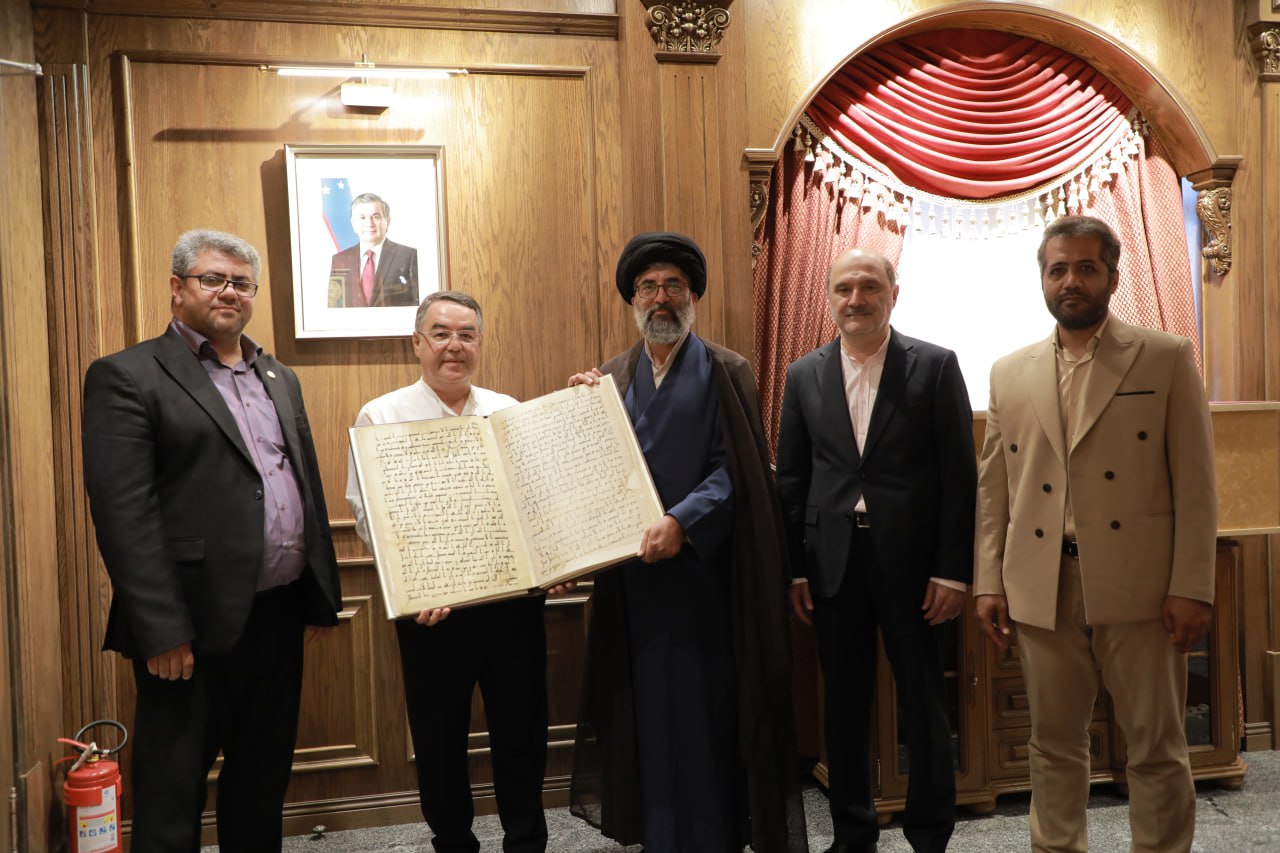
A delegation led by Hujjat al-Islam Sayyid Jalol Hosseini, head of the Astan Quds Razavi Center for Libraries, Museums, and Documents of the Islamic Republic of Iran, visited the Center of Islamic Civilization in Uzbekistan.
At the beginning of the visit, Firdavs Abdukhalikov, head of the Center of Islamic Civilization in Uzbekistan, provided the guests with information about the center’s history, activities, and projects. It was emphasized that the center was established on the initiative of the President of the Republic of Uzbekistan, with the primary goal of studying and widely promoting the heritage of great scholars from Uzbekistan, and fostering cooperation with institutions and specialists engaged in the research of Uzbekistan’s history, culture, and intellectual heritage at the international level.
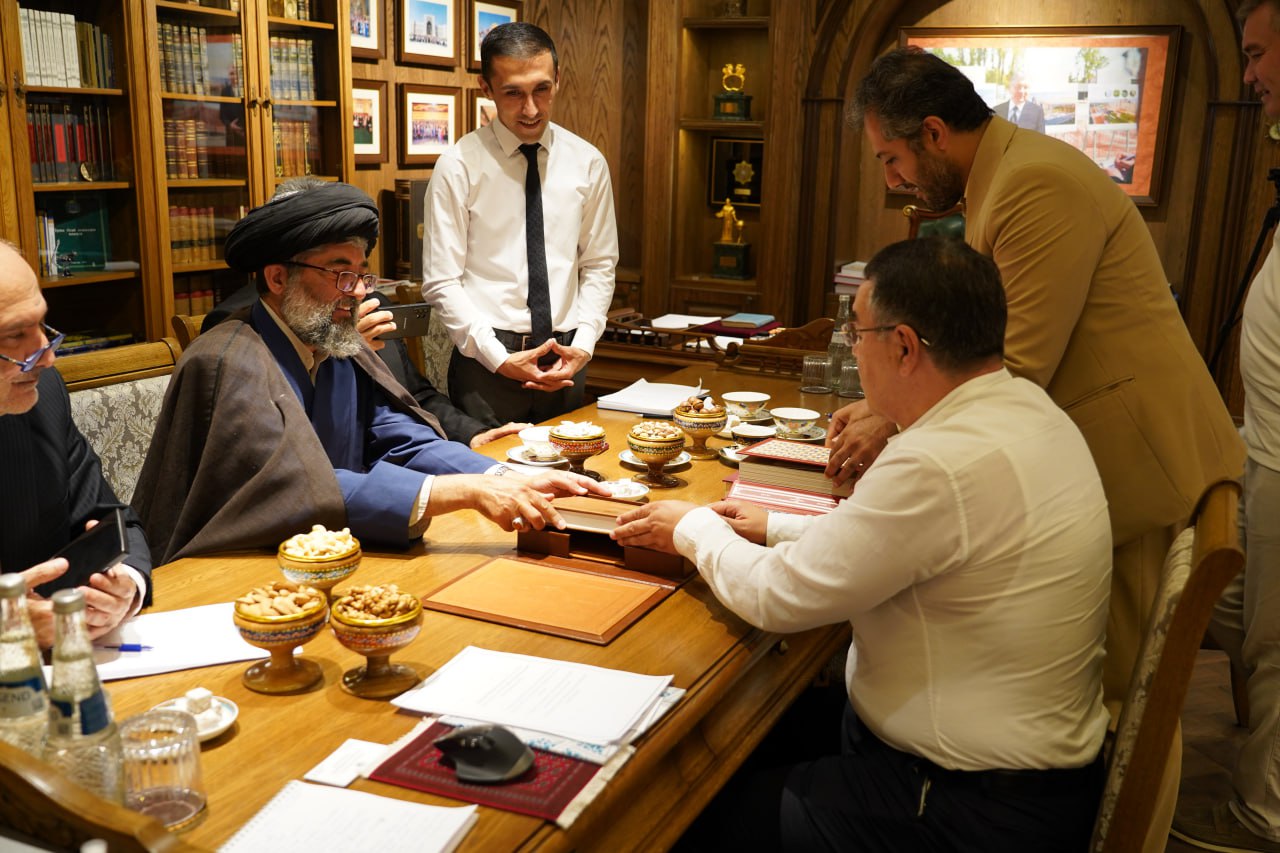
“The Astan Quds Razavi complex in the city of Mashhad is considered Iran’s spiritual and cultural center. Each year, more than 30 million people from our country and around the world visit this complex. It includes several universities, museums, libraries, and research centers. During our visit to Uzbekistan, we were convinced that a significant portion of the Islamic world’s heritage is preserved here. Over the past eight years, under the initiative of President Shavkat Mirziyoyev, works equivalent to centuries have been accomplished in your country, especially in the field of studying and promoting spiritual heritage,” said Sayyid Jalol Hosseini.
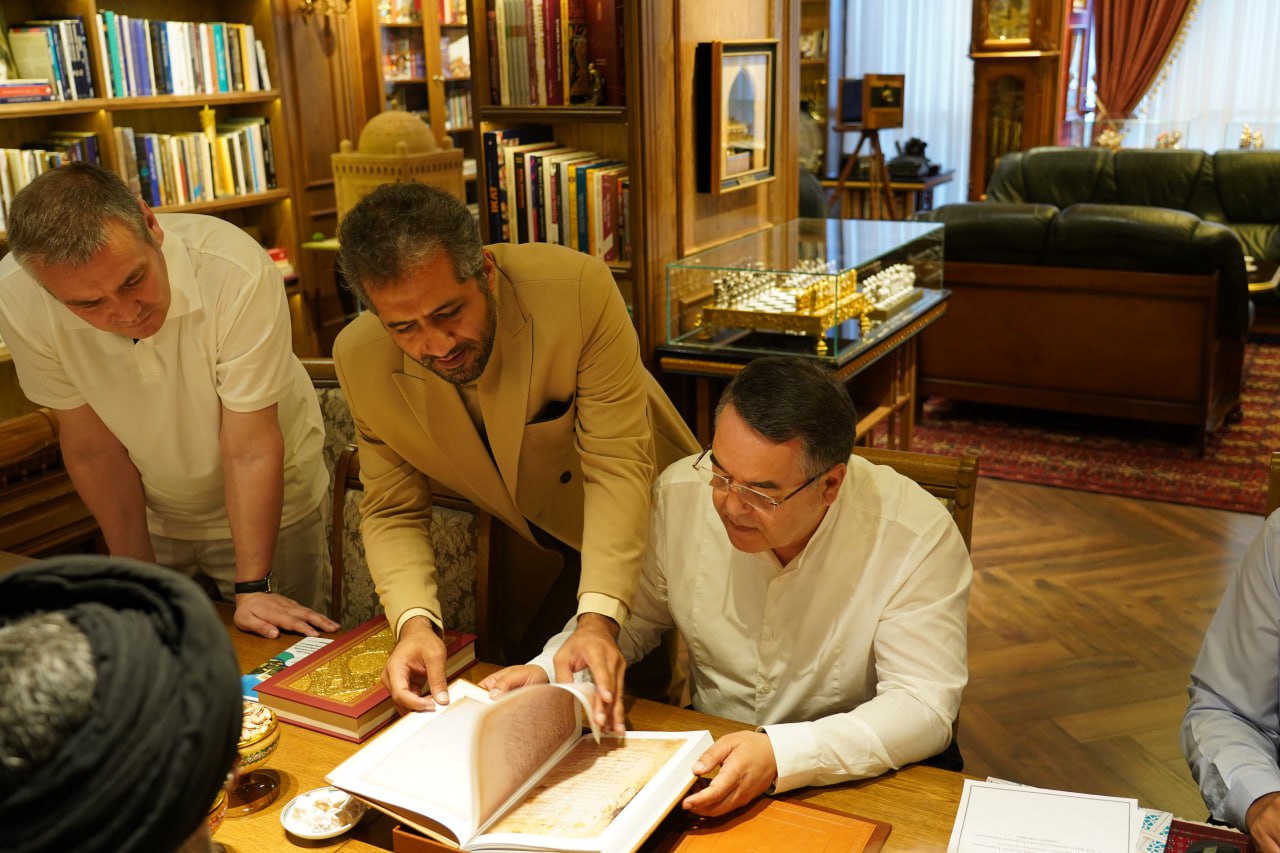
During the meeting, Ebrahim Davoudi, Head of International Relations of the Complex; Saeed Amir Mansouri, staff member of the Rare Manuscripts Department of the Astan Quds Razavi Library; and Amir Saeed Karami, Cultural Affairs Advisor at the Embassy of the Islamic Republic of Iran in Uzbekistan, noted that relations between the two countries are steadily developing. The head of the delegation stated that the Astan Quds Razavi complex provides facilities for foreign researchers and that all necessary conditions will be created there for the staff of the Center of Islamic Civilization in Uzbekistan as well. It was also announced that dedicated rooms on the second floor of the Center of Islamic Civilization in Uzbekistan would be allocated for foreign researchers and international organizations studying Uzbekistan’s cultural and educational heritage.
“Our complex houses more than one million books, periodicals, and rare manuscripts. Among them are over 150,000 unique manuscripts. We are currently working on digitizing these manuscripts. It has been determined that more than 400 of them are in Turkic (Old Uzbek) language. Notably, there are 160 manuscripts belonging to the works of Mir Alisher Navoi. We are always ready to collaborate with Uzbek scholars in researching these manuscripts,” said Saeed Amir Mansouri.
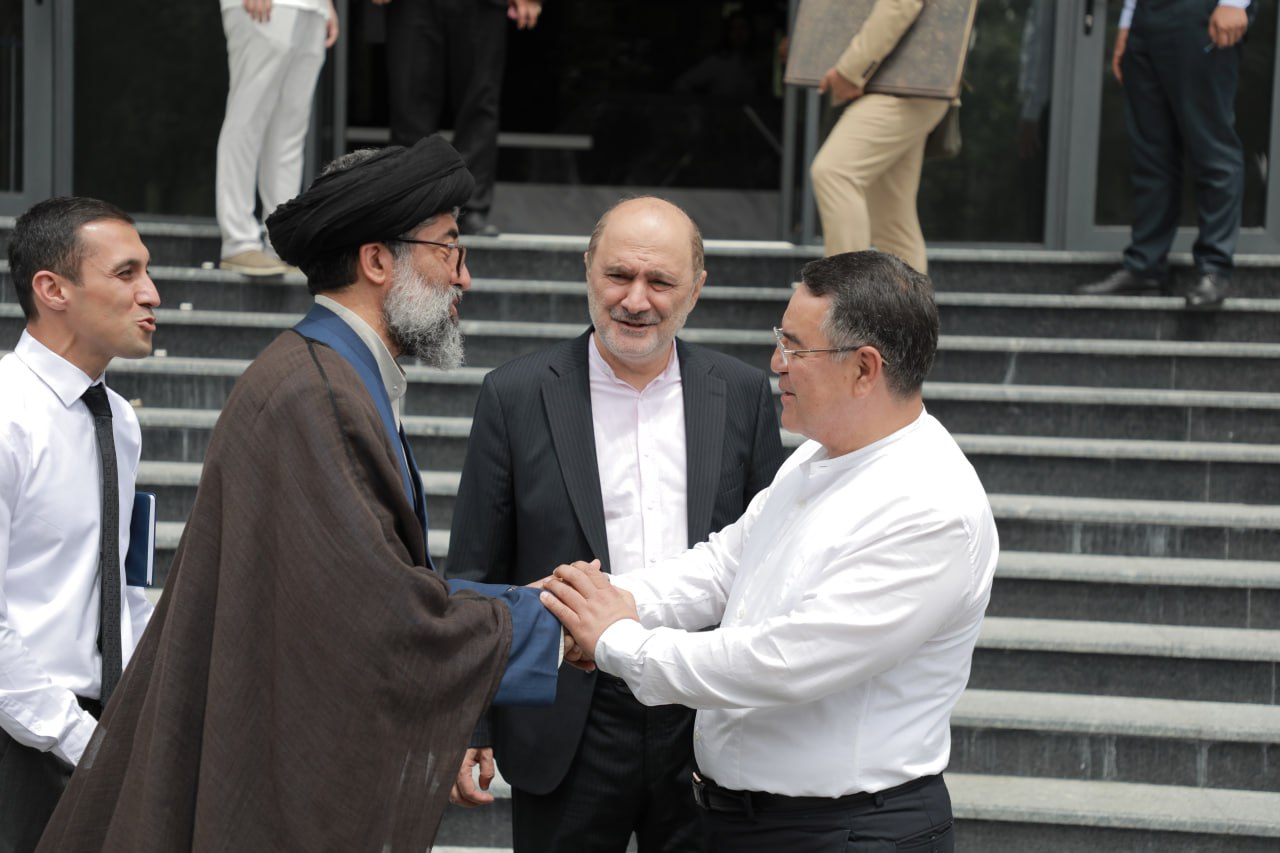
The guests presented the Center of Islamic Civilization in Uzbekistan with facsimile copies of a 13th-century manuscript of the Holy Qur’an, preserved in the Complex’s collection and featuring interlinear translations in Turkic and Persian, as well as Mirzo Ulughbek’s work “Zij-i Jadid-i Koragoniy”. In return, Firdavs Abdukholiqov, on behalf of the Center, handed over facsimile copies of the “Katta Langar Qur’an” and the “Diwan-i Husayniy,” attributed to the pen of Husayn Bayqara.
Most read
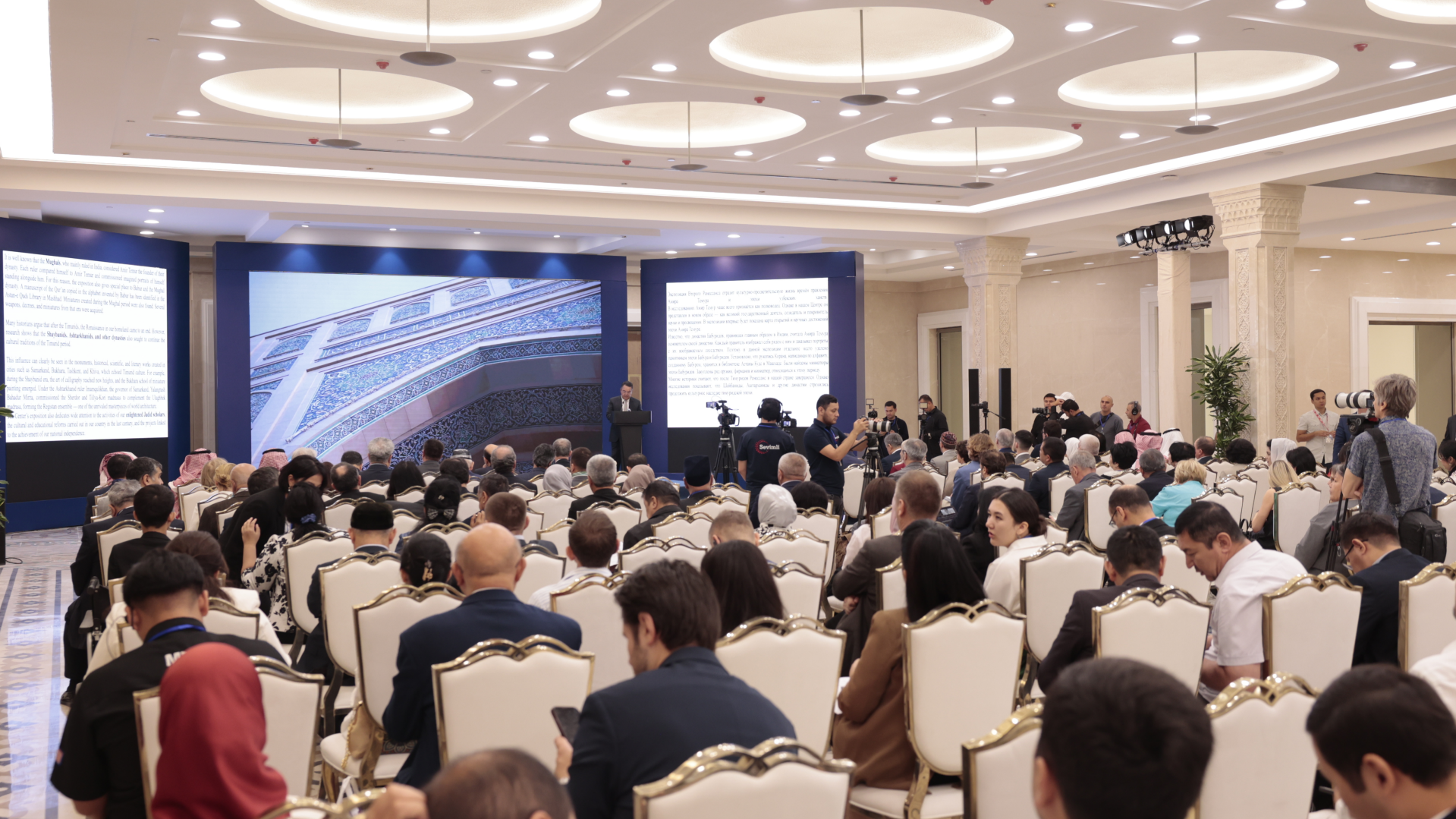
Over 100 experts from more than 20 countries of the world are in Tashkent!
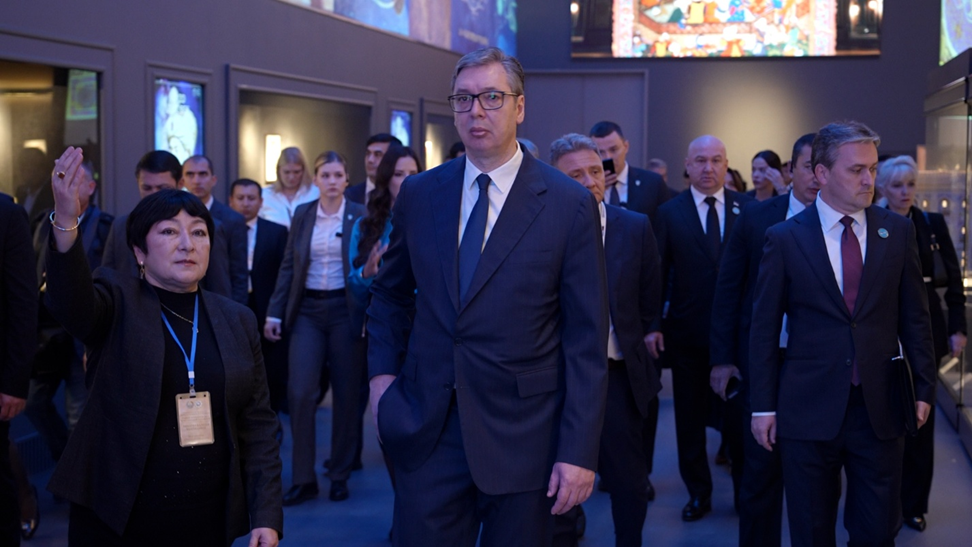
President of Serbia Aleksandar Vučić visited the Islamic Civilization Center in Uzbekistan
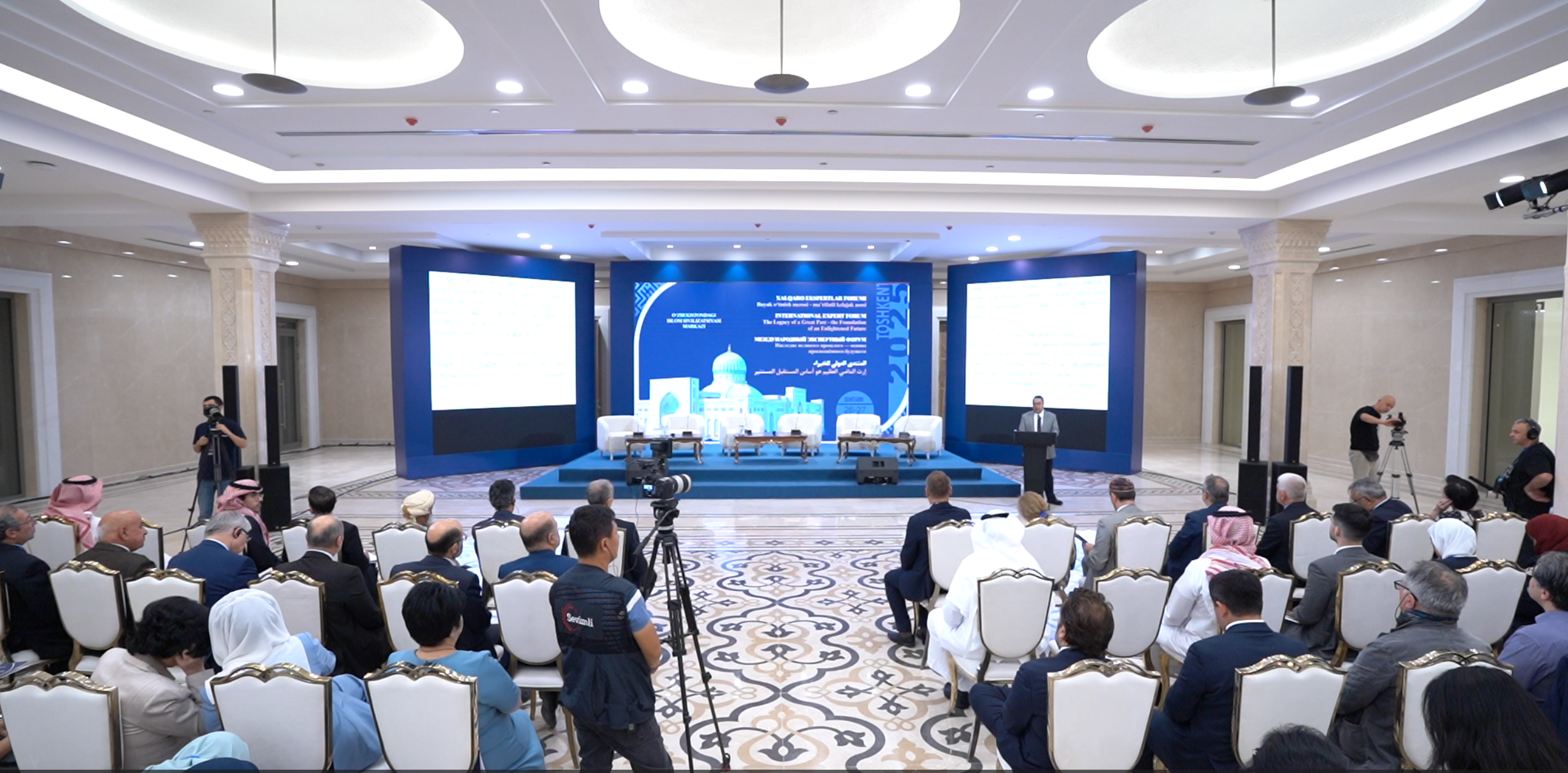
The Center for Islamic Civilization – a global platform leading towards enlightenment











